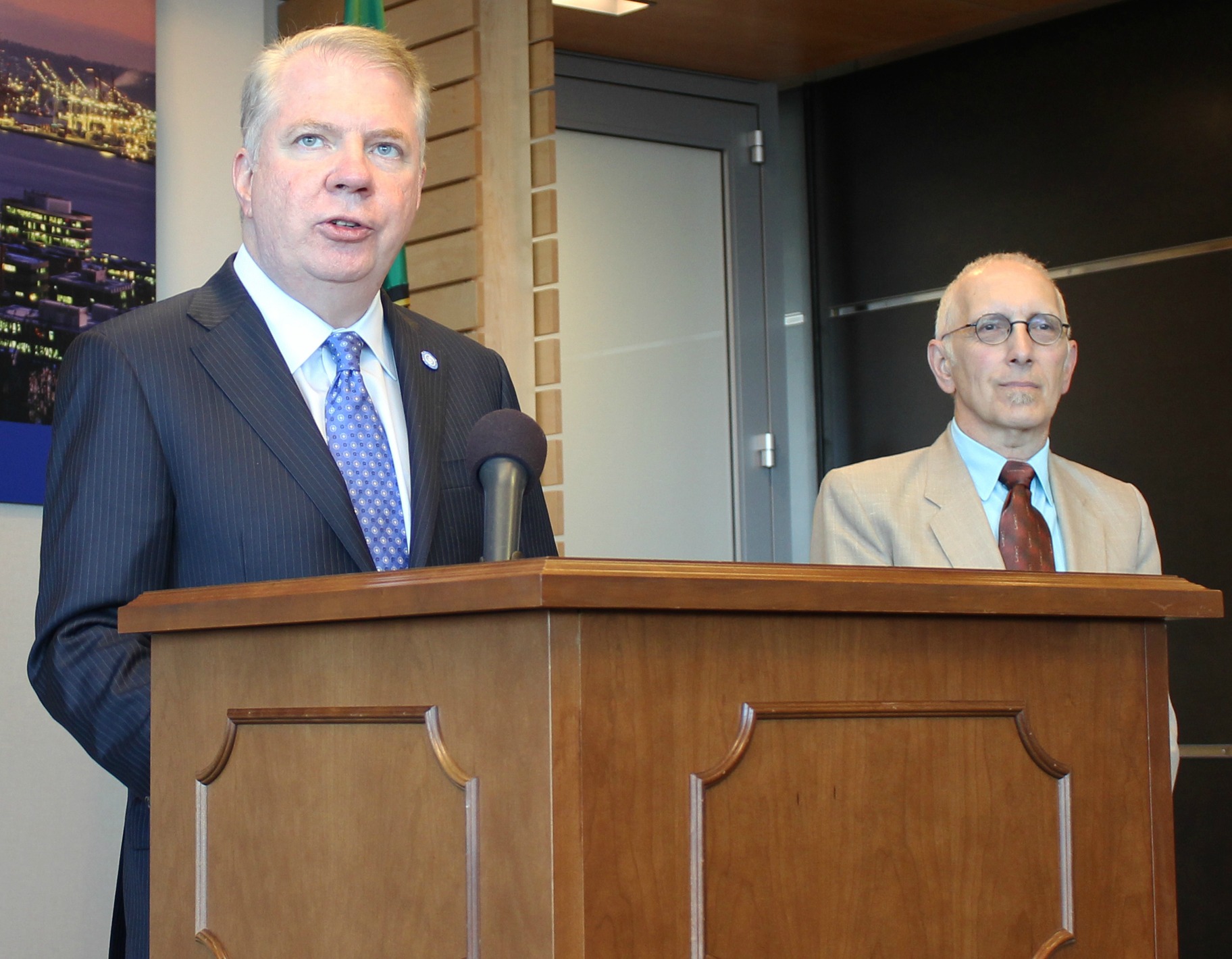Last week Seattle Mayor Ed Murray unveiled several key aspects of his forthcoming 2015-16 budget proposal – including asking for $3.3 million for the hiring of new police officers, and another $1.5 million to improve homeless services.
Today Murray was at it again, announcing plans to create an Office of Labor Standards to help city employers and employees better understand and comply with labor standards advancements, like Seattle’s paid sick-leave law and the minimum wage hike. The creation of the Office of Labor Standards – and, more importantly, the money to do so – will be included in Murray’s 2015-2016 budget proposal, which will be formally submitted to the City Council Sept. 22.
“Taken together, these remarkable advancements are a statement about Seattle’s leadership role on these issues,” Murray said during a Monday press conference, referencing the new minimum-wage law and paid sick leave. “Now we must educate our workers and businesses on how to comply with these new workplace standards. And when necessary, we must be ready to investigate complaints and enforce the law.”
According to the mayor’s office, Murray’s Office of Labor Standards would “focus in the near term on educating the community on the new minimum wage rules,” with a particular eye toward reaching “lower-income and immigrant populations who are most vulnerable to violations.” Murray is also calling for an ordinance that would allow the new department “to investigate and pursue administrative enforcement actions when wage-theft complaints … with the aim of restoring any back wages and benefits they earned but were unpaid.” However, as Anna Minard of the Stranger has pointed out, exactly how enforcement of wage-theft and paid sick leave laws might work under Murray’s proposal remains somewhat unclear.
(As we’ve previously reported, the city seems ill-prepared to enforce the new minimum wage law considering the difficulty they’ve had cracking down on wage theft.)
If approved, the Office of Labor Standards would be housed in the city’s Office for Civil Rights and cost the city $511,000 in 2015 and $660,000 in 2016 – employing seven people by the time things are said and done. The director would report to the mayor.








